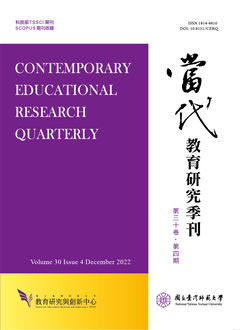

為了提升社區大學講師課程設計知能,使其課程設計能更貼近學習者的生活世界,並強化學習者對在地人文、社會與自然環境的瞭解與自我反思能力,本研究乃提出「社區大學融入式課程設計」的概念。其優點是可以讓學習者在修習原課程時,也思索相關的特殊議題,並更真實地認識自己與所屬生活會世界,以及兩者間的動態關係。為此,研究者首先從釐清「融入式」與「統整式」課程的異同為起點,並參酌當前各社區大學業已開授之融入式課程為例,提出不同融入式課程類型學;之後,再根據社會建構主義、情境學習、實踐社群以及行動科學等,強調知識技能的形構必扣連社會脈絡等相關理論,為社區大學融入式課程設計提供深入且穩固的思維理路,以做為後續實際推動相關課程時的重要理論依據。
In order to improve community college instructors’ abilities to design curriculum that learners’ real world, both learners and instructors to have a better understanding of the local cultural, social, and natural environment, and to increase reflective thinking ability, we strongly recommend “infusion curriculum design” as a doorway to helping learners and instructors to understand their lifeworlds and themselves with a more critical and dynamic perspective. By comparing the similarities as well as differences between infusion and integrated curricula, and by taking infusion curricula from various community colleges into account, this paper explicates different types of curriculum infusion strategies. Furthermore, based on the logic of social constructivism, contextual learning, community of practice, and action science, with an emphasis on the fact that knowledge and skills are related to social contexts and related theories, we provide an in-depth and strong theoretical foundation for infusion curricula taught at community colleges, which suggest an important reference for the curriculum implementation in the future.</span>

本著作係採用創用 CC 姓名標示-非商業性 3.0 台灣 授權條款授權.
本刊國立台灣師範大學教育研究與創新中心
106台北市和平東路一段162號 | 電話: 02-7749-3670 | E-mail: cerecerq@gmail.com
教創中心 | 師大 | 電子報 | 線上投審系統
本刊由國家科學及技術委員會人文社會科學研究中心補助經費
© 2014 CERI-NTNU
